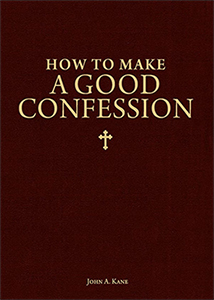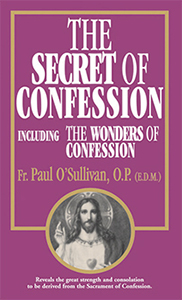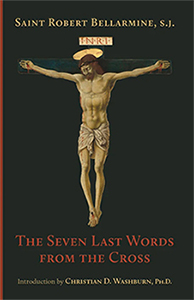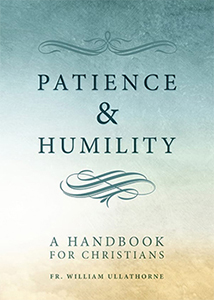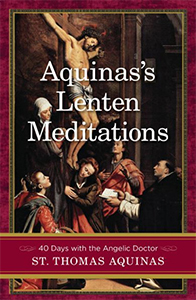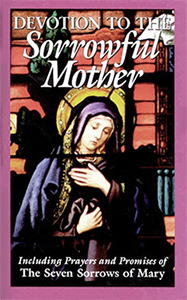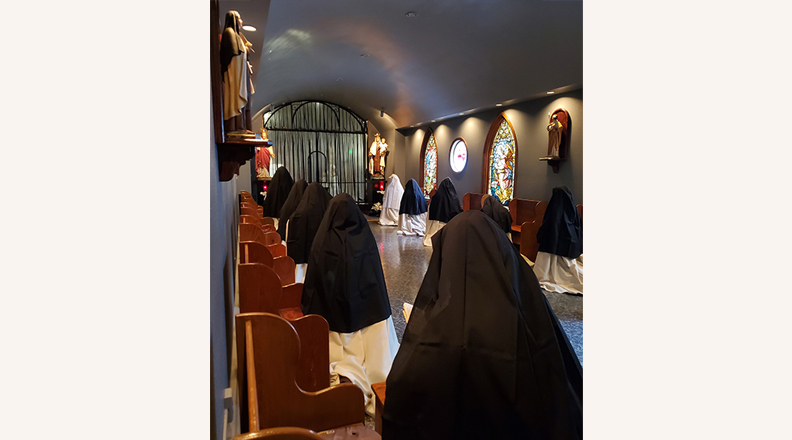
Lent, A Time of Liberation
This time of fasting has opened to us the gates of paradise.
Let us accept it, praying and beseeching that on the day of resurrection we may be glorified in the Lord.
– Matins Responsory for Lent
Dear Friends of Carmel,
Earlier this month, during the days before Lent, we were thinking about what brief message we could send to you by way of encouragement for making this season fruitful. We know well that many approach this holy season with a gloomy, heavy heart. Yet surely our good Lord and Holy Mother Church do not mean for us to be sad and gloomy! This is a time, not to have a burdened soul, but one that is free – freed by Our Lord Himself through prayer and liberating penance.
With quiet joy, we heard the good priest at our Ash Wednesday Mass say this very thing: “For Catholics, this is not a time of gloom, but freedom!”
And from what are we freed? Sin. Sin in all its forms, all its deceits, all its misery. In a word, free from ourselves! Jesus declared most solemnly: “Amen, amen, I say to you, everyone who commits sin is a slave of sin (Jn. 8:34).” “Our free will could do nothing better,” says St. Augustine, “than to let itself be so constrained that it can never do evil.” Lent presents us with the wonderful opportunity of no longer living by and of ourselves, but to strive that Christ live in us (cf. Gal 2:20). “If therefore the Son makes you free, you will be free indeed (Jn. 8:35).”
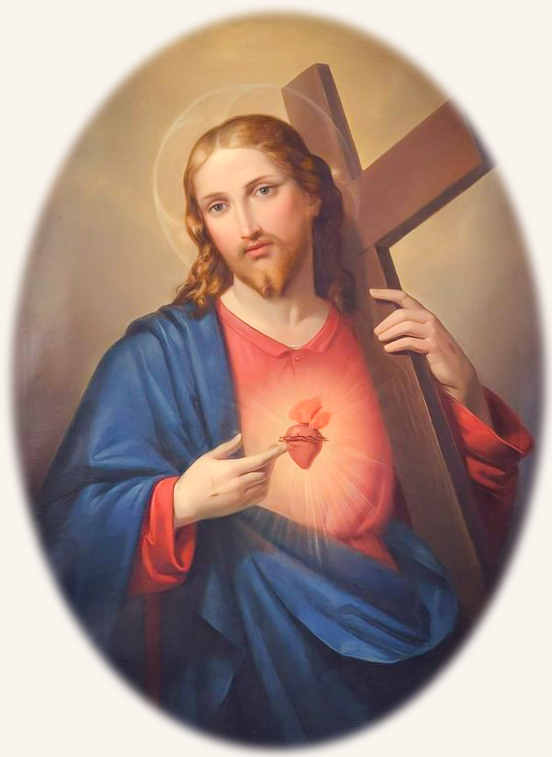
Do we not sense here, also, the way to peace? St. Thomas Aquinas tells us that peace is the tranquility of order – and what gives true calm and order in life like peace of conscience? “Come now,” says the Lord God through Isaias the prophet, “Let us set things right … Though your sins be like scarlet, they may become white as snow; though they be crimson red, they may become white as wool. If you are willing, and obey, you shall eat the good things of the land; but if you refuse and resist, the sword shall consume you… (Is. 1:18-20).”
Let us not refuse and resist, misusing the free will that God has given to each one of us. Rather, during this holy season, let us take up the yoke that is easy and light, the yoke of penance that liberates us.
We Could Be Free
We spend years bargaining with God. Shall we give Him all? We are unable to decide. We refuse to divest ourselves of many plans, desires, hopes, and so we do not attain that emptying out of spirit which is necessary if we are to be fully possessed by God.
We fight against God, Who asks us to give ourselves to Him without reserve. Weighed down by our self-love, blinded by our ignorance of God’s Will, held back by our fears, we dare not take the step, and because we are afraid of being more miserable, we remain in our misery. If we gave ourselves to God, we should be free.
– Father Lallemant, S. J., Spiritual Doctrine
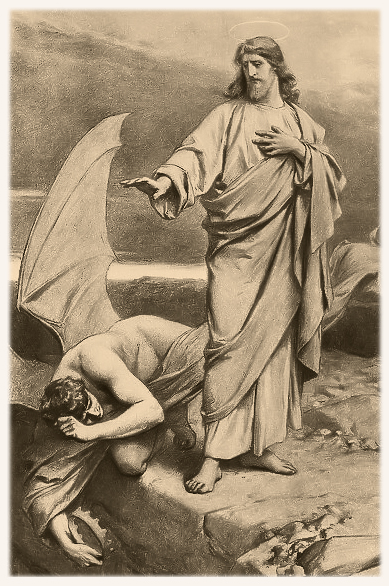
See our past Lenten newsletters and doctrine and devotions page for further thoughts about this liturgical season, along with counsels for keeping a good Lent. Let us remember these helpful counsels as we make our voluntary offerings of penance – and also continue to carry our daily crosses in the sufferings God sends each soul. “If anyone wishes to come after Me, let him deny himself, and take up his cross daily, and follow Me. For he who would save his life will lose it; but he who loses his life for My sake will find it.” (Luke 9:23)
These are the ways God purifies our souls, as Our Holy Father St. John of the Cross teaches. By voluntary penances, we actively work with grace; the sufferings God sends purify us passively. The word passion that we so often associate with Our Lord’s sufferings and death, is derived from the verb patio, to suffer, to endure. Thus we are united with Christ, our “passion” with His.
In closing, we remind you that the devil, who hates our freedom and does all he can to twist it into something fearful and evil, will surely try to discourage us and to dissuade us from our love, trust, prayer and penance. Those are the times that we must increase our prayer, depending on God’s faithful grace and loving Providence, calling for help from our Blessed Mother, our guardian angel and all of the Saints.
Know of our prayers with you and for you as we go forth with Our Lord into the desert to pray for these 40 days,
Your Carmelite Sisters
“Liberty in the eyes of the world, is freedom to disobey as well as to obey, freedom to do evil as well as to do good. True liberty, according to the saints, is not freedom to disobey but only to obey, it is not freedom to do evil, but only to do good… Liberty in the eyes of the world is the power to choose between good and evil, between duty and selfish whims, between obedience and revolt. It is the power to say with Satan: “I will not obey.” … If liberty is thus understood, clearly it is impossible to see how Jesus was free, He who never rebelled against divine authority or the commandments of His Father, and who could not rebel against them.”
Fr. Reginald Garrigous-Lagrange, Our Savior and His Love For Us
*Helpful Lenten Practices*
Fasting
You might say that fasting is the most “famous” aspect of Lent, a centuries old practice that was only relaxed in more recent years. Understanding the history behind fasting, its roots in the story of the fall of Adam and Eve, its aims, and purpose in our souls is to understand why it comes so highly recommended, especially in our battles against satan… not only by the the Old Testament Prophets, the Church, the Saints, the Popes, but by Our Lord Himself who started His public life with a forty day fast and counseled His apostles: “Some [devils] can only be cast out by prayer and fasting.” (Matthew 17:21)
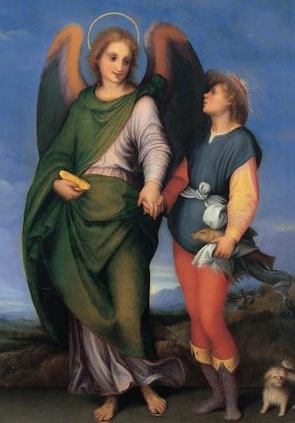
You can read the details about its rich history and importance in this past newsletter, and the traditional rules and recommendations concerning fasting can be found in the back of the Liturgical Calendar or in the Baltimore Catechism.
Liturgical Prayer
Prayer is one of the great “penances” (along with fasting and almsgiving) recommended by the Church, and there is no greater prayer than the Liturgical worship of the Church. Daily Mass is an invaluable Lenten penance, but not one that everyone has the freedom to practice with their different obligations and duties in life.
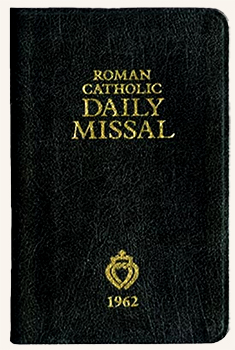
Lent is one of the oldest liturgical seasons of the Church, and every single day has its own special Mass formulary, replete with important lessons and Lenten themes. If you are not able to assist at Mass, at least following the Mass propers for each day would “put you in touch” with these liturgical treasures. The selected Epistle and Gospel reading for each day, the special prayers – all contain immense graces and are the best of sources for true prayer – united with the prayer of Christ through His Church.
Liturgical books like Abbot Gueranger’s often-recommended Liturgical Year, are also wonderful in explaining the Scripture lessons, prayers and liturgical rites of the season.
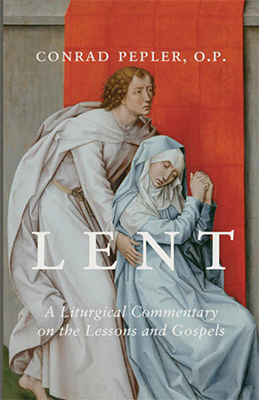
We also have a new book to recommend: Lent by Conrad Pepler, O.P. – a classic now back in print. This excellent book gives commentary on the Scripture readings of each day of Lent (Traditional missal), with particular emphasis on the Gospels and the wonderful lessons of Jesus Christ. These Lenten readings, in the words of Father Pepler, are chosen so as “to lead every Christian to identify himself with Christ hanging on the Cross.” Our two old copies of the early edition of this book are well-worn – and appreciated – by all of the Sisters.
Stations of the Cross
Meditation on the Passion of Our Lord is one of the cornerstones of the spiritual life. When we study Christ, when we meditate and pray by His side, He conforms us to Himself. And there is no better time for this pious exercise than the season of Lent. Archbishop Goodier’s book, The Passion and Death of Our Lord Jesus Christ, provides abundant and detailed reflections for study and prayer. And we always love to recommend the beautiful Treasury of Stations Book below.
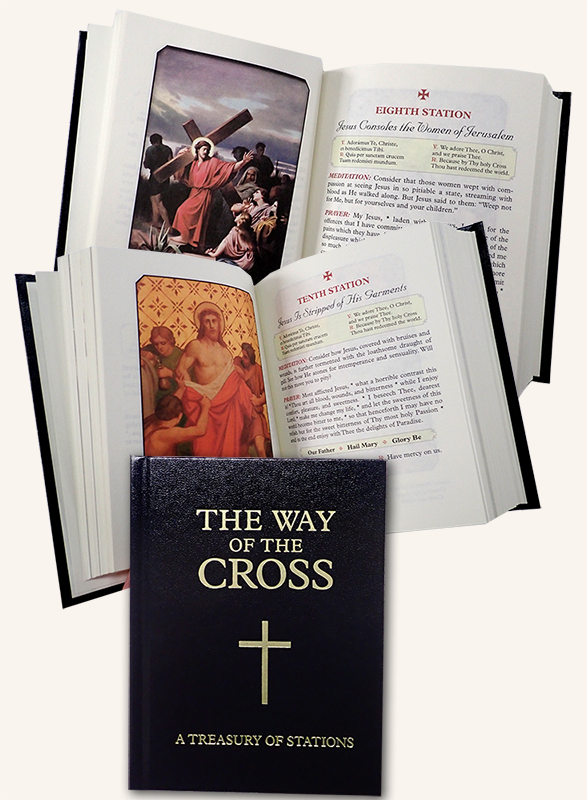
In a past newsletter we went into great detail about the history behind the Stations of the Cross, a method of praying and re-living Christ’s Passion. It was started by none other than the Blessed Mother, who is said to have re-visited the scenes of Our Lord’s passion every day. Eventually this pilgrimage, was taken up by the Church universal, not just those Christians able to visit the Holy Land.
While it is only necessary to meditate on each of the “stations” (the different scenes that we recall along the road of Calvary), and no strict formula is necessary, nevertheless there have been many meditations or forms written, some of them by Saints of the Church, to help us meditate on these moments. We encourage you once again to make use of them! More about this practice can be read in our past newsletter and on our website.
“If you wish to advance in your spiritual life, think of the Lord’s sufferings every day, because by thinking of It, it is impossible not to be overwhelmed with love capable of making other effects relative when compared to his own, and strength to overcome with joy the inevitable burdens and trials of life.”
– St. Alphonsus de Liguori
The Sacrament of Penance
Frequent confession is a beautiful efficacious way of conquering sin, even our venial sins and imperfections. Alas, so few make use of this great gift from Our Lord, but there is no better time than Lent to remedy this! We offer you these two books to help you become better acquainted with this Sacrament and how to make a good confession. Our Examination of Conscious leaflet is also very helpful in preparing!
How to Make a Good Confession by Father John Kane – How to make your confessions less difficult and more fruitful. Here is the help you need to enable you to overcome your reluctance and open your soul to the vast reservoir of mercy found in confession. The author, Fr. John Kane, provides solid guidelines for how you can (and must) make the most effective possible use of the sacrament of penance. Even better, he shows you how to carry the grace of confession into your daily life so that you’ll start winning – consistently – your battles against sin.
The Secret of Confession by Father Paul O’Sullivan – Probably the most intriguing and consoling book ever written about the Sacrament of Confession. This little gem contains a host of true stories about Confession, plus quotes from the Bible and the Saints of the early Church. Shows how even Protestants admire Confession, how it comes from Our Lord Himself, and gives renewed courage and youthfulness of spirit to the heart and soul. He says that by means of weekly Confession any sin can be conquered! Filled with warmth and love.
Study and Spiritual Reading
Traditionally, Lent was not only the time of the public penitents, who practiced public penance during this forty days in order to receive the sacrament of Penance at Easter. It was also an important time for the catechumens, those studying the Faith and preparing to receive the sacrament of Baptism at the Easter Vigil.
Spiritual reading is a must all the time – to keep our minds and hearts directed to God and holiness in the Christian life. But in the spirit of the catechumens (as we too will hopefully renew our baptismal promises at Easter!) it is never more important than at this season – the life and sufferings of Our Lord, the lessons found in the Liturgy, the elements of the spiritual life, Christian virtue and the virtues we are weakest in practicing, etc. Spiritual reading is also an excellent spring board for prayer, another all-important aspect to Lent.
With that in mind, we mention a few titles here that will be worth considering for your Lenten reading. All of the titles on our Lenten books page have been carefully chosen and are excellent. But here, note a few that perhaps we haven’t featured before.
The Seven Last Words From the Cross by St. Robert Bellarmine – Reading the meditations and counsels of a Saint is never a waste of time! The sweet and wise Bellarmine offers a wealth of insight for the Christian life by contemplating these “last sermons” from Our Redeemer from the Cross.
Patience and Humilityby Bishop Ullathorne – We have mentioned this little book before. But as Lent is a time when, as St. Paul urges, we must “conduct ourselves in much patience,” it deserves another mention. So many have benefited by reading in this book about the perfection of these virtues in Christ Our Lord and how we may follow His example in simplicity, peace and joy.
Lenten Meditation books – St. Thomas Aquinas and Bossuet – The liturgy laces in and out of these meditation books, but is not the emphasis. Guidance for Christian life and perfection is what you find in them – all in imitation of our great Exemplar – Christ Himself.
Devotion to the Sorrowful Mother– booklet of prayers, devotions, meditations. Our Lady as sharing in the work of Our Savior on the Cross reminds us all of what we owe this great Mother of souls!
“The observance of Lent is the bond of union in our army; by it we are distinguished from the enemies of the Cross of Christ; by it we turn aside the chastisements of God’s wrath; by its means, being guarded by heavenly support during the day, we fortify ourselves against the prince of darkness. If this observance comes to be relaxed, it is to the detriment of God’s glory, to the dishonor of the Catholic religion and to the peril of souls, nor can it be doubted that such negligence will become a source of misfortune to nations, of disaster in public affairs and of adversity to individuals.” – Pope Benedict XIV, May 29, 1741
